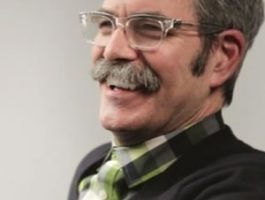
Coping With Unfulfilled Dreams
What are you convinced you can't live without? Today on the broadcast, Christian counselor Dr. Paul David Tripp, director of Changing Lives International, talks with Dennis Rainey about life's dreams--what to do with them when they come true and how to benefit from them even if they don't.
Show Notes
About the Host
About the Guest
-
What are you convinced you can't live without? Today on the broadcast, Christian counselor Dr. Paul David Tripp, director of Changing Lives International, talks with Dennis Rainey about life's dreams--what to do with them when they come true and how to benefit from them even if they don't.
-
Dave and Ann Wilson
Dave and Ann Wilson are hosts of FamilyLife Today®, FamilyLife’s nationally-syndicated radio program. Dave and Ann have been married for more than 38 years and have spent the last 33 teaching and mentoring couples and parents across the country. They have been featured speakers at FamilyLife’s Weekend to Remember® marriage getaway since 1993 and have also hosted their own marriage conferences across the country. Cofounders of Kensington Church—a national, multicampus church that hosts more than 14,000 visitors every weekend—the Wilsons are the creative force behind DVD teaching series Rock Your Marriage and The Survival Guide To Parenting, as well as authors of the recently released book Vertical Marriage (Zondervan, 2019). Dave is a graduate of the International School of Theology, where he received a Master of Divinity degree. A Ball State University Hall of Fame quarterback, Dave served the Detroit Lions as chaplain for 33 years. Ann attended the University of Kentucky. She has been active alongside Dave in ministry as a speaker, writer, small-group leader, and mentor to countless wives of professional athletes. The Wilsons live in the Detroit area. They have three grown sons, CJ, Austin, and Cody, three daughters-in-law, and a growing number of grandchildren.
-

Paul David Tripp
Paul David Tripp is a pastor, author and conference speaker. He is the president of Paul Tripp Ministries and works to connect the transforming power of Jesus Christ to everyday life. This vision has led Paul to write 17 books on Christian living, produce 14 teaching series and travel aroun...more
Dr. Paul David Tripp talks about life’s dreams–what to do with them when they come true or if they don’t.
Bob: One of the challenges all of us experience in the middle years of life is the reality that some of our dreams start to die. Paul David Tripp says maybe we've put too much emphasis on those dreams.
Paul: Often, the subtle mistake in our dreaming is not that we dream. That's a beautiful thing, but that in our dreaming we are asking Creation to give us what only the Creator can give. A car can't give it to me, a job can't give it to me, the marriage can't give it to me. There is a hunger in my heart that can only be filled by the Lord Jesus Christ.
Bob: This is FamilyLife Today for Thursday, October 12th. Our host is the president of FamilyLife, Dennis Rainey, and I'm Bob Lepine. If the death of a dream has caused you to experience despair or discouragement, let's think through that together today, all right?
And welcome to FamilyLife Today, thanks for joining us. Your dad was a pretty good pitcher, you've said, right, a baseball player?
Dennis: He had a wicked curve ball.
Bob: And did you play baseball growing up?
Dennis: I did.
Bob: And were …
Dennis: Not as good as my dad.
Bob: Really?
Dennis: No.
Bob: High school ball?
Dennis: I did – played junior college ball and played some semi-pro – semi-pro means you don't get paid.
Bob: Did you have …
Dennis: I don't know why the "pro" was even in there.
Bob: Did you have, in the back of your mind, the hope that you'd be in the bigs?
Dennis: [laughing] No. I had a very realistic estimation of my abilities, Bob.
Bob: You played college basketball, too, right?
Dennis: I did.
Bob: Did you think there …
Dennis: No.
[laughter]
Bob: You never had …
Dennis: Too short, too slow …
Bob: You had all the wrong things going for you there, huh?
Dennis: No doubt about it.
Bob: Did you aspire to some greatness that you were unable to achieve?
Dennis: President of the United States of America.
Bob: Did you?
Dennis: You know, there was a glimmer of a thought when I was in junior college, "What if?" And it was actually one of those things that God used to get my attention, because I thought, "Even if I achieved that objective, if that was where life was found in achieving the next dream or the next goal, that's empty." And it was really a part of how God recalibrated my life not so much around my dreams and my goals but who I was and what my mission was on planet earth.
Bob: You know, I grew up with a radio under my pillow at night when you go to bed – always loved listening to the guys on the radio, and I thought, "Boy, if you could ever be a guy on the radio" …
Dennis: So this …
Bob: … that would be it."
Dennis: So this was your dream.
Bob: So I'm living my dream, and, I'm telling you, it's not all it was cracked up to be.
[laughter]
I'm here to tell you – and it's great.
Dennis: What are you saying, Bob? Are you saying you're looking for another profession?
Bob: I'm not saying that. I'm just saying that I think we have these idealized pictures of everything, don't you think?
Dennis: All right, yeah.
Bob: And that life is not the idyllic picture we thought it would be.
Dennis: No, and we have someone with us, Dr. Paul David Tripp, who has been talking all this week about, really, how we can live lives of contentment. That really is what your book is all about – "Lost in the Middle," isn't it, Paul?
Paul: That's right.
Dennis: Paul is the director of Changing Lives International, he is a counselor, a faculty member, and author, a speaker, a father, a husband, and has been a guest here on FamilyLife Today before, and we've been talking about the subject of – well, we've talked about midlife crisis, but this really goes beyond midlife crisis, doesn't it?
Paul: We're talking about all the things that human beings face in their lives, and they tend to hit at midlife, but physical issues, death of dreams, regret – those are human issues.
Dennis: What would you say to a guy like Bob?
Bob: You the other thing I want …
Dennis: Who had a dream about being in radio?
Bob: And achieved it. The other thing I thought – I always thought I could do what David Letterman does, you know?
Dennis: I believe you could do it better than him, frankly.
Bob: Well, there we go. So what am I doing …
Dennis: I've seen you in action.
Bob: So what am I doing stuck here in this dumpy little radio studio with you as my Paul Shaffer, huh?
Dennis: Oh, that's a brutal thought – the band, that's a brutal thought.
Bob: Do you think, Paul, that everybody has those dreams, those aspirations of where life ought to take them?
Paul: The biblical word is imagination, and it's this uniquely human ability – this ability we have to sort of project into the future. Let me define a dream for you – a dream is desire coupled with imagination and projected into the future.
Here's the two things you can say about dreams that you can be sure that these two things are true – one is, dreams die. There's a whole class of people who are dealing with that – just the death of dreams. The second thing is, dreams disappoint. I tend to load into my life all these "if I had this then my life would be" – and when I actually get my dream I realize it wasn't what I thought it would be.
I worked for a guy who loved automobiles. He happened to be a very wealthy man, and he was convinced that there was a car out there that he would own that would be the car, and he'd quit seeking for cars. And I was his gardener. I drove into his driveway one day, and his huge garages were filled, and there were now automobiles on one lane going down his whole driveway. Finally, there was no more room for cars.
Dennis: What was the car he was hoping for?
Paul: He didn't have a car in his mind, he was just thinking, "I'll hit the ultimate automobile, and I'll be satisfied." I said to him one day, "You know, it's not working." He says, "What's not working?" I said, "Your car thing, it's not working. Because what you're asking that car to do it will never do for you. There is something inside of you that's dissatisfied that will never be solved by the next car." But he kept buying cars.
Bob: Let me move from your car illustration to what we deal with over and over again, and that is couples who say, "I had a dream that this marriage would be more than it is."
Dennis: Or – our family and our children would be perfect.
Paul: Of course, let me give you this example. I hear wives all the time say in my times of counseling with them, "All I ever wanted was a husband who would make me happy." Well, I think right away, "Well, then that man's cooked," because as much as a man should want to please his wife, he's a sinner. He's going to make mistakes, he's going to say unkind things, he's going to make bad decisions. She'll never experience that vision – oh, she'll get the marriage of her dreams someday, but it will be on the other side. Right now we all face the disappointment of what we thought would be.
Bob: So when somebody looks at a marriage relationship and thinks, "I'm disappointed." Is it because they've had too high expectations or is it because maybe there's some legitimate reason for disappointment. How do they navigate that and decide what's right and what's not?
Paul: See, I think it's a mix of both. Again, the Bible calls us to high standards, and those high standards are going to give me a lens to look at my marriage that will actually make me see flaws that it wouldn't see otherwise. But that's always mixed with the selfish, "If I were God, this is what I would want my world to be like" dream. It gets mixed up. None of us are ever in one or other of those places. It's this troublesome mix of both of those. And part of dealing with dreams is picking apart that mix. What are the things that I ought to aspire to that God says aspire to, and what are the things that were just my hope for my life that I can let go of and say, "It's okay that I don't have those things."
Dennis: You know, by the time I finished reading this chapter in your book, I was asking the question, "Are dreams wrong?" I mean, we do have an imagination that I believe has been given to us by God, and certain personalities as in Type A personalities, tend to aspire and imagine and dream way beyond capacity and capability. You're not saying that's wrong.
Paul: I'm saying it's incredibly human, it's a beautiful gift. We are people of purpose and vision. That's a wonderful thing. Here's the point – you can't allow yourself to be ruled by your dream, because there's a dream of another that's supposed to rule you. God has a plan, God has a purpose, God has His finger on the pen that writes your story, and if I'm ruled by my dream, I'm holding tightfisted onto my dream, I'm going to be in a battle with God at some point.
I tell the story in the book of a man who was gifted as an architect. He did very well in his schooling was – it really looked like he was going to be a star in that world and ends up sort of dead-ended in this little company that's doing sort of industrial architecture, and he loses his way. Now, why did he lose his way? It was not a bad thing to aspire to. If I'm in a personal relationship with the Creator, I ought to want to be creative. That's a beautiful thing. But it was ruled by that dream. His identity, his meaning and purpose were attached to being an architectural star, and when he wasn't there he literally didn't have a reason to live.
Bob: And the truth is, if he'd gotten there, he would have been disappointed because the satisfaction he would have derived from that would have been less than he had imagined, right?
Paul: And, in his present despondency, he's not asking what better dream does God have for me? A dream that's not me being ripped off, but it's God actual giving me something better than I would have dreamed for myself.
You know, C.S. Lewis says our problem is not that we want too much from God but that we would settle for too little. There's the dream issue.
Dennis: As I thought about what you were writing about, I thought of 1 Timothy, chapter 6, verse 6. Paul wrote to Timothy at the end of this first epistle, "But godliness actually is a means of great gain when accompanied by contentment." How would you define contentment as it relates, then, to dreams? Because there is a sense in which a dream is a statement of discontent with today, and it's an imagination of what I hope to get tomorrow.
Paul: I think contentment lives in the real world as joyful remorse. So it's not wrong to say, "Boy, it's a shame I didn't get that job with that big firm. That would have been lots of fun, but I embrace that with joy because I believe that there is a God who really does love me, who wants me to be part of the most glorious thing in the universe – that's His kingdom work – and who is writing my story. In writing my story, He gives me dignity and purpose that I would never have. So I hold remorse with an open hand because it's coupled with this joy of knowing that I'm a child of God.
Bob: I don't know if it's just the way I'm wired, but I keep reflecting on song lyrics and movie scenes …
Dennis: … it is the way you're wired.
Bob: I'm thinking of that classic movie, "On the Waterfront," and Marlon Brando is in the back of the car – you know the classic line from the movie, right? He turns to the guy he's riding with, and he says …
[movie clip]
Brando: I could have been a contender. I could have been somebody.
[end movie clip]
Bob: And you see the angst in his soul when he thinks, "I traded the dream and got this." And it's – we've already talked about regret, but he's experiencing that. And then I think, Glen Campbell recorded a song in the '60s about the "The Everyday Housewife." I don't know if you've ever heard it.
Paul: Yeah, I did.
[Glen Campbell sings "Everyday Housewife"]
Bob: And there's disappointment. Now, if you're sitting at the coffee table with the everyday housewife or in the back of the taxi with Marlon Brando saying, "I could have been a contender," and they're realizing – my dreams didn't – I didn't get where I wanted to go, and there is regret. How do you counsel them?
Paul: The first thing I would say is there are traps that you want to avoid. One is the envy trap. Envy is a cancer in the soul. When you start cursing your life, the next step is you want the life of somebody else. That will never work because you can't acquire the life of somebody else.
Second is the bitterness trap, where I feel ripped off. I give in to the anger and the cynicism and the hopelessness of that. The doubt trap – I begin to allow myself in ways I've never done before to doubt God's kindness, his goodness, his faithfulness and grace. I question the character of God. Now, I may not ever do that theologically, but in quiet moments, maybe that's what I'm doing. The bargain trap – I want to sort of bargain with God – "God if I do this, would You do this for me?" And God will never bargain with me. The reason He won't is because He knows in that bargain what I don't want is Him. I want the thing behind Him. And then the denial trap where I try to convince myself I'm younger than I am; that I've got more potential than I have; and I give in to all those fantasies of control.
So I would first say avoid those traps. What are your tendencies, where are you being tempted to go? The second thing I would say is you've got to affirm this wonderful, wonderful thing – nobody cares more about the usefulness of your life than the One who gave it. No one cares more about the stewardship of your gifts than the One who gave them. No one cares more about your influence than the One who places you in positions of influence – relationships, job, whatever.
God has a better dream. It's not like you're off the dream map. It's God is calling you to exchange a smaller dream for a bigger dream.
Dennis: He designed us in the first place. He has to know what's best for our lives. Ephesians 2:10 is a verse I've anchored my soul in on more than one occasion. It says, "For we are His workmanship created in Christ Jesus for good works, which He prepared beforehand that we should walk in them."
Paul, one of the things that you write in your book is that in order to live out this life of contentment and still have some dreams, we need to carry with us two commitments wherever we go. The first one is that we need to be committed to being persistent and being teachable students of God's Word. And I love what you write in your book. You said, "We were never designed to figure out life on our own." I really like that, especially as you think about dreams, because we had these dreams, but when they're not met, how are you going to interpret the dream? Well, the Bible …
Paul: … does it for you.
Dennis: It really does. It will give you the grid for understanding it. But there was a second point you say, a second commitment we need to carry with us, and that's the habit of ongoing self-examination. And then you list a number of questions that really fulfill that last point about really reflecting frequently and often about your own life and what you're' up to. And I'm going to ask that we put these questions on our Internet site, if it's okay with you.
Paul: Absolutely.
Dennis: FamilyLife.com, we'll put these questions on there. But I want you to just share them with our listeners, because I've found these questions to really be healthy as you think about living life on purpose and going forward with your dreams.
Paul: Well, the first one is what keeps you going? What's the thing that gets you up in the morning, winds your clock? Second question – what makes your life worthwhile? What gives it worth? Third, what dreams have tended to capture your heart? Be honest – what are your dreams? Fourth, right now, how are you making sense out of your life? How are you doing that interpreting work that all of us do? Another question – what are you convinced you cannot live without? That's "if only I had ___, then my life would be ___." Where do you seek to find identity? Why do you call one day good and another bad? What an important question. What, in life, do you really crave most? Be honest – why do you do the things you do? And then final question – as you make choices and decisions, what are you hoping to get out of them?
Bob: Now, if somebody wrestles through those questions, what are you hoping will come to the surface? How does that serve them in moving forward?
Paul: Those questions all come out of the way the Bible talks about the human struggle. And so what those questions invite me to do is quit looking in carnival mirrors, you know, those mirrors that show me myself but with distortion – the carnival mirror of cultural values or the opinion of a friend or my own reading of my history – into the clear mirror of the Word of God – to see myself as I actually am. And then I go to God, and I say, "Here I am. I need Your help. I need Your grace, but I'm not going to die, I'm not going to quit. I'm going to believe this is a wonderful moment of fresh starts. I believe You're giving me this insight, as painful as it is, so that I can plant new seeds and grow a new harvest, dream new dreams that are more consistent with what You want from me, and celebrate Your grace. Uncomfortable as that grace has been, I celebrate it because of the fresh start that You're giving me."
Dennis: In that same chapter, in 1 Timothy, chapter 6, again where it's still speaking about being content and how you deal with money – I believe he addresses every American when Paul instructs him. It says, "Instruct the rich to do four things – do good, which is plant some of those trees you're talking about, and dreams and visions for the future; secondly, be rich in good works, reach out to others as you've been talking about here; third, be generous; and, fourth, ready to share.
And if you think about our lives as we live our lives, the life that is focused on self atrophies. It becomes so self-absorbed that it shrinks inward into a very small package. But if we focus outward and think about how God can use us in the lives of others, beginning with those closest to us – our spouse, our family members, neighbors, those we go to work with or at church – and begin to think about helping them, then and only then, if we're submitting to the Master and to His story for our lives, His plan for our lives, we really can live lives that are purposeful and ones that fulfill His mission for what He has for us to accomplish.
Bob: You know, I have to tell you, I was surprised one day when my wife called me and said, "Do you have Paul Tripp's new book, "Lost in the Middle?" And I said, "Well, yeah, we've got it here – I've got it in my bookcase." And she said, "Will you bring it home? I'd kind of like to read it." Of course, my wife, she's still in the middle, too.
Dennis: And doesn't have a '66 Chevy.
Bob: And I took the book home, and what surprised me was we'd hadn't had any conversations about struggle or challenge or – so I asked her a few days later, I said, "Have you been reading Paul's book?" And she said, "Yeah." I said, "Has it been helpful," and she said, "It has," and I thought, "Well, what? What am I missing as a husband, you know, what didn't I know was going on?"
Dennis: Right.
Bob: And she said, "Nothing big." She said, "It's just helping me put names to things I've felt. It's helping me think through them biblically."
Dennis: Giving her a vocabulary.
Bob: Yeah, and I was thinking about that in relation to folks who are listening this week, who may be in the same situation. There's nothing huge, but they are in those middle years, and they know life feels a little different, and they want some help thinking that through.
We've got copies of Paul's book in our FamilyLife Resource Center, and if you'd like a copy sent to you, go to our website at FamilyLife.com. When you get to the home page, look for the red button in the middle of the home page that says "Go." That will take you right to site where there's more information about Paul's book and other resources that are available from us here at FamilyLife.
We have John Piper's book, "Don't Waste Your Life," which is a wonderful resource for every stage of life, whether you're a teenager or a parent of teenagers or long past the parenting years. It's a book to help you recalibrate your life according to God's design for what life is supposed to be all about.
Again, our website is FamilyLife.com. If you click that "Go" button in the middle of the screen, you'll find more information about these and other resources, and if you're interested in both Paul's book and John Piper's book, we'll send along at no additional cost the two CDs that feature our conversation this week with Paul David Tripp. You can review those together as a couple or you can pass them along to someone who might benefit from hearing these messages.
You can also request these resources by calling us at 1-800-FLTODAY. That's 1-800-F-as-in-family, L-as-in-life, and then the word TODAY. When you call, someone on our team can let you know how we can send these resources out to you.
You know, when you go through the middle years of life, I guess this is true in every season of life – a husband needs his wife to be his helper, his support, somebody who admires and respects him. And not long ago, your wife Barbara was speaking to a group of women on different things a wife can do to help her husband be the man that God wants him to be. This month we're making the CD audio of that message available to any of our listeners who can help us with a donation of any amount for the ministry of FamilyLife Today.
We're listener-supported so those donations are critical for our ongoing ministry, and if you can help with a donation, all you have to do is go to the website, FamilyLife.com, click on where it says "Make a donation," and as you fill out the donation form, when you come to the keycode box, type in the two letters, "CD," so we'll know to send you this CD from Barbara Rainey, or call and make your donation over the phone at 1-800-FLTODAY. Just mention that you'd like the CD from Barbara Rainey when you make that donation. It's our way of saying thank you for your support of the ministry of FamilyLife Today. We appreciate hearing from you, and we appreciate your financial support as well.
Now, tomorrow we are going to continue talking about the middle years, and we want to look specifically at what happens when it feels like life is moving faster than you are able to move any longer. I hope you can be with us for that.
I want to thank our engineer today, Keith Lynch, and our entire broadcast production team. On behalf of our host, Dennis Rainey, I'm Bob Lepine. We'll see you back next time for another edition of FamilyLife Today.
FamilyLife Today is a production of FamilyLife of Little Rock, Arkansas, a ministry of Campus Crusade for Christ.
We are so happy to provide these transcripts to you. However, there is a cost to transcribe, create, and produce them for our website. If you’ve benefited from the broadcast transcripts, would you consider donating today to help defray the costs?
Copyright © FamilyLife. All rights reserved.




